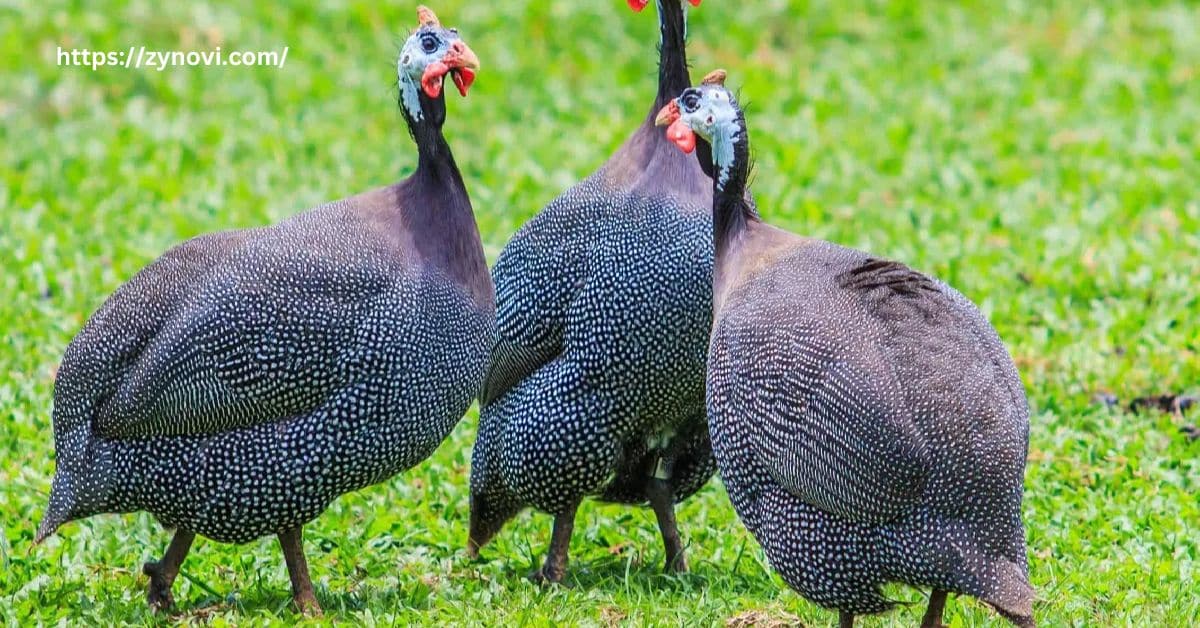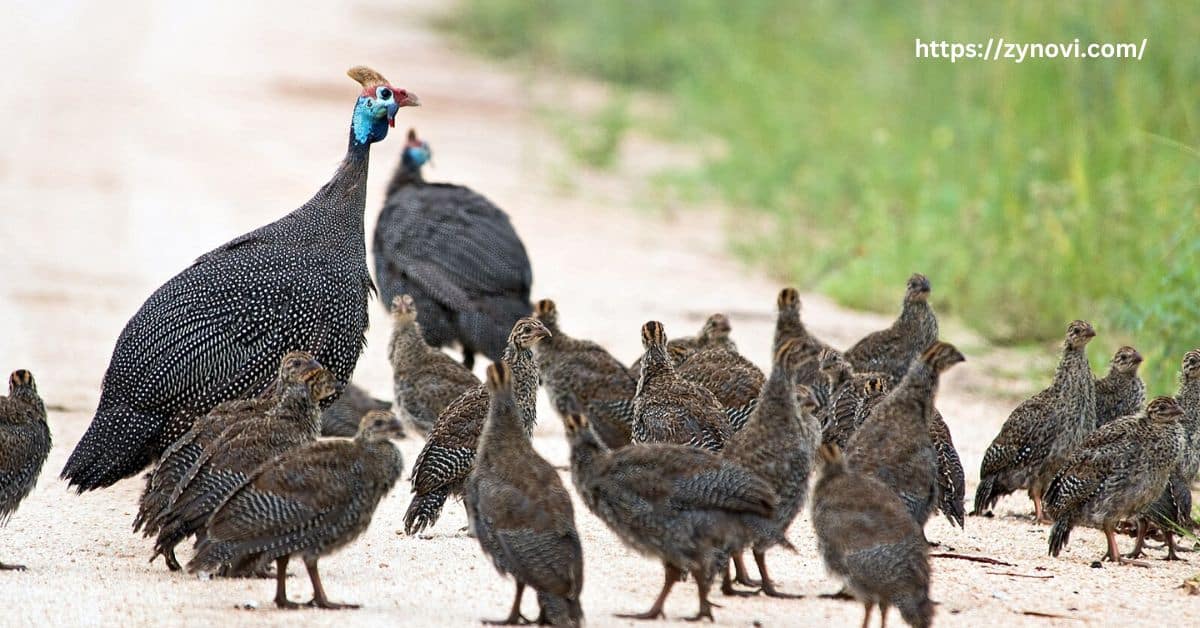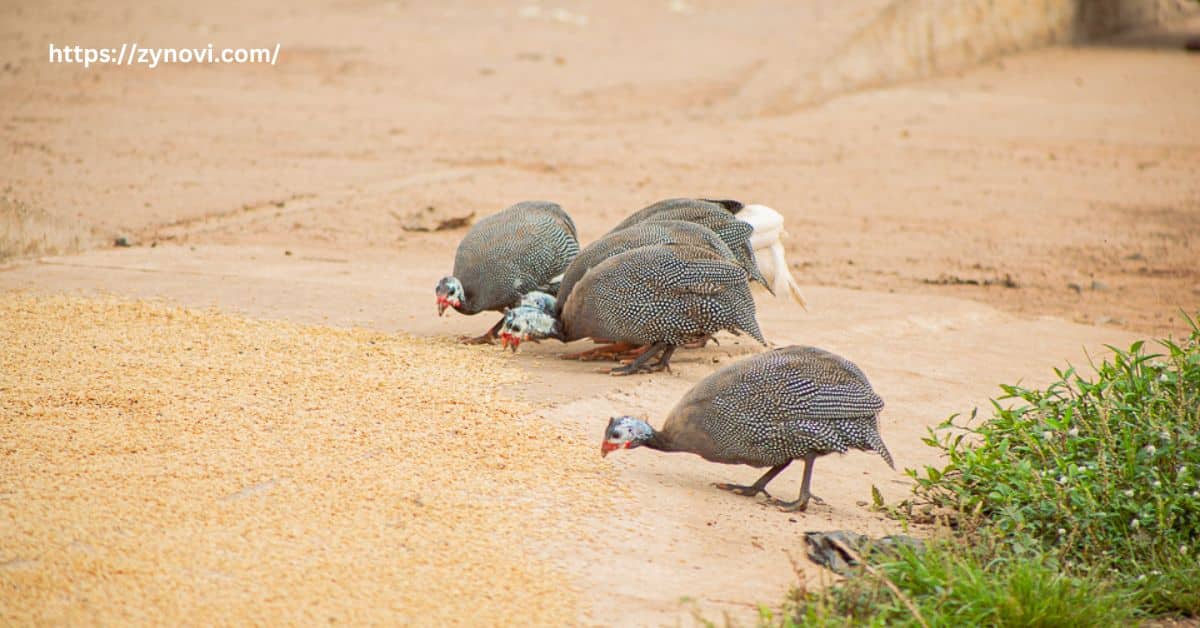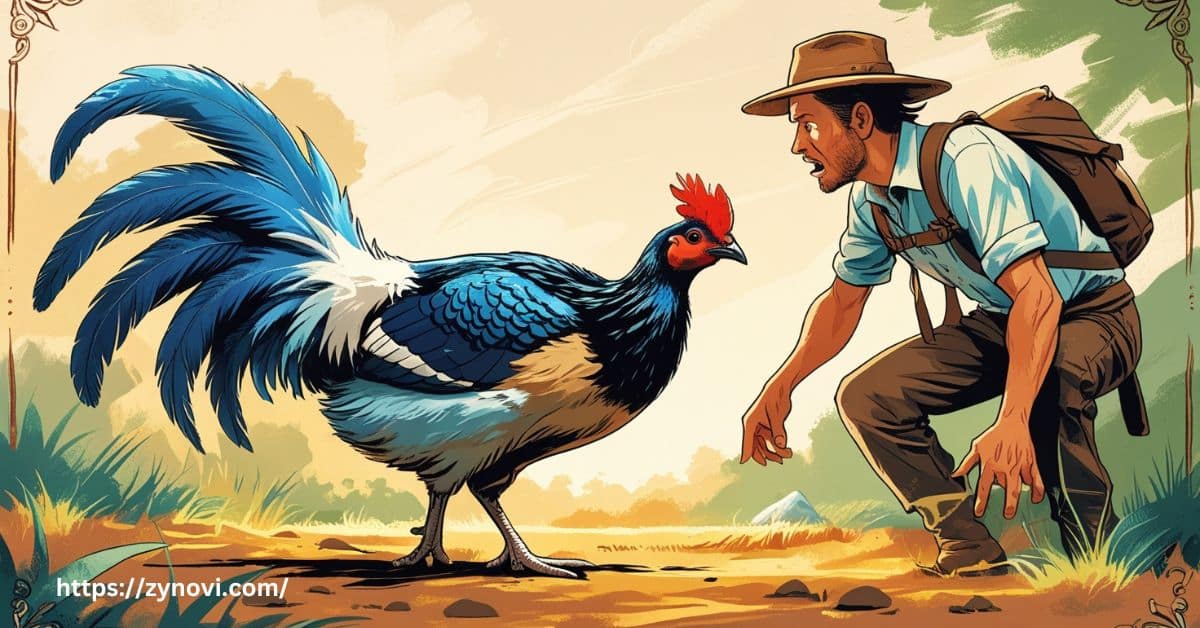Do Guinea Fowl Attack Humans? They are non-aggressive, may attack if perceive a threat, protecting their territory or during breeding season.
If you’ve ever seen one of these quirky birds darting around your yard, you might be wondering about their behavior especially if you’re concerned about the occasional peck or chase. While guinea fowl can seem intimidating with their loud calls and rapid movements, it’s important to understand why they act the way they do.
In this article, we’ll jump into the fascinating world of guinea fowl, exploring when and why they may become aggressive. By the end, you’ll have a clearer idea of how to handle these birds and avoid any unwanted encounters. Keep reading to learn more!
What Are Guinea Fowl?
Introduction to Guinea Fowl
Guinea fowl are domestic birds originating from Africa. They are known for their hardiness, adaptability, and ability to thrive in a variety of environments. Among the most common species is the helmeted guinea fowl (Numida meleagris), recognized for its bony, helmet-like crest and spotted plumage.
These farm animals are highly valued for their dual role as pest control agents and watchdogs due to their sharp alertness and vocalizations.
Ecological Importance and Roles
Guinea fowl are invaluable contributors to maintaining ecological balance through their natural behaviors and diet.
- Pest control: Guinea fowl are highly effective natural pest deterrents. Their diet includes ticks, grasshoppers, flies, spiders, and even small animals, making them a practical and eco-friendly solution for managing pests in farms, gardens, and backyards.
- Snake deterrents: These birds are known for their loud, sharp calls and collective flock behavior. When they sense a snake or similar predator, they create a commotion that often scares the threat away, ensuring the safety of their flock and surrounding areas.
- Contribution to biodiversity: By foraging for food, guinea fowl aerate the soil and disperse seeds, promoting plant growth and enriching soil health. Their natural activities enhance local biodiversity and benefit the ecosystems they inhabit.
Common Misconceptions About Guinea Fowl
A widespread misconception about guinea fowl is that they are inherently aggressive birds. While it’s true that they can display defensive behavior, especially during breeding season or when protecting their territory, this is not their default nature.
In reality, guinea fowl are generally shy and non-confrontational creatures. They typically avoid humans and other animals unless they feel threatened or provoked, making them misunderstood rather than naturally aggressive.
Do Guinea Fowl Attack Humans?

Typical Behavior Toward Humans
Guinea fowl are highly social birds that prioritize interactions within their flock over engagement with humans. While they are not inherently hostile, they tend to be cautious and observant around unfamiliar people.
This wariness is more pronounced in agricultural settings, where their protective instincts are heightened due to their role in safeguarding territory.
Their behavior toward humans is usually neutral unless they perceive a threat to their flock or nesting areas.
Signs of Aggression in Guinea Fowl
Do Guinea Fowl Attack Humans? Guinea fowl exhibit several distinct behaviors when they feel threatened or defensive:
- Pecking and charging: They may physically confront perceived threats by pecking or rushing toward them to drive them away. This is often their first line of defense.
- Vocalizations: Alarm calls, which are loud and repetitive, signal distress and warn their flock of potential danger.
- Puffing feathers and flapping wings: By fluffing their feathers and flapping their wings, they make themselves appear larger and more intimidating to scare off intruders.
- Advancing posture: During territorial disputes or breeding season, they adopt a forward-leaning stance, a clear signal that they are prepared to defend their space.
Factors That Lead to Human Encounters
Guinea fowl may interact with humans under specific circumstances:
- Protecting their nests or young: When their nests or offspring are nearby, guinea fowl become highly defensive and may confront humans they see as potential predators.
- Responding to loud noises or sudden movements: Their heightened alertness makes them reactive to unexpected sounds or quick gestures, which they interpret as potential threats.
- Misinterpreting human actions as threats: Simple actions like approaching their territory or gesturing near them can be misread, prompting defensive behavior.
Case Studies or Anecdotes
A farmer in Texas observed heightened aggression in his guinea fowl during the mating season. The birds, particularly the males, became more defensive and territorial, often chasing intruders near their nesting areas.
Despite this, the farmer found that consistent handling and ensuring ample space for the flock significantly reduced conflicts.
By respecting their boundaries and understanding their triggers, he successfully managed their behavior, turning them into effective farm allies without unnecessary confrontations.
Reasons for Aggression in Guinea Fowl

Territorial Instincts and Defending Their Space
- Guinea fowl are naturally territorial birds, particularly in confined areas like farms and backyards where resources such as food and shelter are shared.
- They exhibit defensive behaviors to protect their flock, often chasing away perceived threats, including humans or other animals.
- This instinct helps secure the safety of their group. Understanding their need for space and avoiding unnecessary intrusions can help reduce potential conflicts with these ground-dwelling birds.
Seasonal Factors and Hormonal Changes
The breeding season, typically in spring and early summer, brings noticeable changes in guinea fowl behavior.
- Hormonal surges during this time intensify their protective instincts, particularly in males who become more aggressive to safeguard their territory and attract mates.
- This heightened defensiveness can result in more confrontational actions, such as chasing or vocalizing loudly.
- Providing them with ample space and respecting their nesting areas can help manage their natural breeding-season aggression.
Perceived Threats and Misinterpretations
Guinea fowl are highly reactive to perceived threats, which may include:
- Children running or playing nearby: Quick, unpredictable movements can be misinterpreted as a danger to their territory or young.
- Farmers unknowingly approaching nesting areas: Entering their nesting zone often triggers defensive behavior as they instinctively protect their eggs.
- Sudden, unpredictable movements: Actions like waving arms or abrupt gestures can alarm guinea fowl, prompting them to respond aggressively.
Prevention and Safety Tips
Avoiding Aggressive Encounters
Preventing aggression requires understanding guinea fowl behavior:
- Respect nesting areas and avoid disturbing them: Stay clear of their nests to reduce defensive reactions, especially during breeding seasons.
- Avoid loud noises or sudden movements around the flock: Sudden disruptions can trigger their instinct to defend themselves, leading to unnecessary aggression.
- Provide ample space for roaming and reduce overcrowding: Sufficient space minimizes stress and territorial disputes, keeping the flock calmer.
Protective Measures for Farmers and Gardeners
Farmers can minimize conflicts by:
- Installing barriers around sensitive areas like gardens: Physical barriers prevent guinea fowl from accessing restricted areas, reducing the chances of damage or confrontation.
- Wearing protective clothing when handling guinea fowl: Thick gloves and long sleeves can protect against pecking or scratching during close interactions.
- Using food as a distraction to redirect their attention: Offering treats or feed can calm aggressive birds and shift their focus away from potential triggers.
| Safety Tips | Actions |
|---|---|
| Wear protective gear | Gloves, long sleeves, sturdy footwear |
| Create physical boundaries | Fences or netting to limit access |
| Stay calm during encounters | Avoid sudden movements; back away |
| Use deterrents sparingly | Sticks or tools for guidance, not harm |
What to Do During an Attack

Do Guinea Fowl Attack Humans? If a guinea fowl attacks:
- Remain calm and avoid running: Sudden movements can escalate the situation. Stay still and calm to avoid triggering further aggression.
- Use a stick or object to guide them away without causing harm: Gently steer them away with a non-threatening object, ensuring you don’t provoke them further.
- Slowly back away from their territory: Back off slowly without making direct eye contact, signaling you are not a threat and allowing them to calm down.
Long-Term Strategies for Coexistence
- Socialize young birds early to reduce fear of humans: Early exposure to people can help guinea fowl become more comfortable and less likely to view humans as a threat.
- Keep flocks engaged with distractions like scattered seeds or insects: Engaged birds are less likely to focus on territorial defense, reducing aggression.
- Establish clear boundaries to prevent territorial overlaps: Designate specific areas for the birds to roam, preventing them from becoming overly protective of other areas and minimizing conflicts.
Do Guinea Fowl Make Good Pets or Guards?
Benefits:
- Excellent for tick control and insect management: Guinea fowl are natural pest controllers, feeding on ticks, insects, and even small animals like grasshoppers and spiders, which makes them great for reducing pests around farms and gardens.
- Natural watchdogs due to their loud calls and alertness: Their high-pitched calls act as an alarm, alerting you to potential threats or intruders, making them valuable protectors for farms and properties.
- Hardy and low-maintenance: Guinea fowl are resilient birds that can thrive in various climates with minimal care, making them a practical choice for busy farm owners.
Challenges:
- Noise levels may bother neighbors: Guinea fowl are known for their loud, distinct calls, which can be disruptive, especially in residential or suburban areas, leading to potential complaints from neighbors.
- Potential aggression if not properly managed: While generally non-confrontational, guinea fowl can become aggressive, particularly during mating season or when they feel their territory is threatened, posing challenges for owners.
- Require adequate space and socialization: Guinea fowl need plenty of room to roam and proper socialization, as overcrowding or lack of interaction can lead to stress and behavioral issues.
FAQs
Will guinea fowl attack people?
Guinea fowl may attack people if they feel threatened, especially when protecting their territory or during mating season.
Can guinea fowl be aggressive?
Yes, guinea fowl can display aggressive behavior, particularly when defending their nests or territory.
Are guinea fowl friendly to humans?
Guinea fowl are generally shy around humans but can become more friendly with consistent handling and socialization.
What are the disadvantages of guinea fowl?
Guinea fowl can be noisy, territorial, and challenging to handle in some situations, making them less ideal for all environments.
Conclusion: Do Guinea Fowl Attack Humans?
Guinea fowl, while sometimes aggressive, are generally more protective than threatening. Their territorial instincts, hormonal changes during the breeding season, and heightened vigilance can make them appear threatening, especially when they feel their space or young are at risk.
However, with proper understanding of their behavior, including triggers for aggression and their social structure, humans can coexist peacefully with these birds. Whether utilized for pest control, farm protection, or even as pets, guinea fowl offer significant ecological and practical benefits when managed with care and respect.










